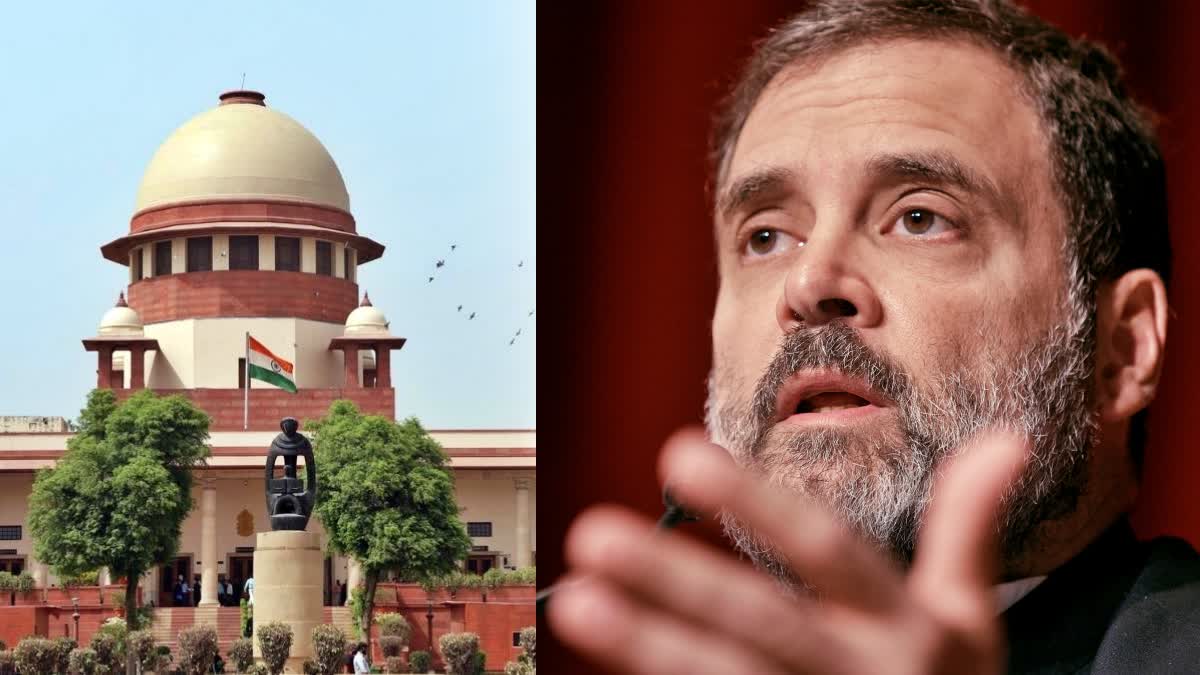New Delhi: The Supreme Court Tuesday agreed to hear on July 21 an appeal filed by Congress leader Rahul Gandhi, challenging the Gujarat high court order refusing to put on hold his conviction and a two-year jail term in a criminal defamation case. Senior advocate A M Singhvi mentioned the matter before a bench headed by Chief Justice of India D Y Chandrachud. The top court agreed to list the matter for hearing on Friday.
On Saturday, the former Congress president moved the Supreme Court challenging the Gujarat High Court's refusal to stay his conviction in the criminal defamation case over his 'Modi surname' remark. Gandhi said he did not get a fair trial in the present case from the very beginning.
If political satire were to be held to be a base motive, then any political speech which is colourfully critical of the government, would become an act of moral turpitude, which would completely corrode the foundations of democracy. The conviction in the case led to his disqualification as a Lok Sabha MP earlier this year, Rahul Gandhi said, in his plea.
Also read-After Gujarat HC dismisses Rahul Gandhi's plea, Congress hits the streets to protest
Rahul said he has the right to criticise and comment upon the measures undertaken by the prime minister, who is his political opponent, and merely because he was critical or he had a different opinion, the complaint for defamation can’t be sustained against him. “It is in that context that the Petitioner addressed Prime Minister Narendra Modi as a thief for a substantial reason that the money of the poor people of the country was given away to Anil Ambani,” the plea said.
Neither complainant nor his witnesses say that the allegations in this regard were false. The Petitioner, if at all spoke as to why the surname of all thieves is Modi, he spoke of it in relation to this theme of mis-governance of Shri Modi and not in connection with any Modi samaj or persons holding Modi surname,” said the plea.
The plea contended that the high court after considering the irrelevant factor(s) has invented a hitherto unknown definition for the seriousness of an offence through several leaps of logic - by first misreading and misconstruing the idea of ‘moral turpitude’ and then using that misconstrued notion also to misconstrue the idea of a ‘serious offence.’
Also read-Defamation case: Gujarat HC dismisses Rahul Gandhi's petition
The plea contended that depravity and vileness, which are the essential core of moral turpitude, are associated with rapists, serious murderers, heinous violence, and such other similar crimes. “To equate a political speech criticizing the government or a section of society, even if defamatory, sets a completely incongruous standard unknown to jurisprudence which deals with moral turpitude”, it added.



